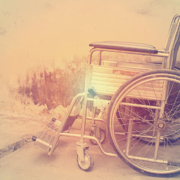Three Commonly Missed Signs of Nursing Home Abuse
America’s nursing homes are in crisis. According to an ABC News report from the early 2000s, elder abuse occurs at one out of every three nursing homes in the United States. Since that report first came out, things have gotten far worse. Aging demographics and longer life expectancies have greatly increased the need for long-term care among America’s seniors, and at the same time, there has been consolidation in the nursing home industry, and those facilities that remain have experienced major staffing shortages.
Today, it is believed that as many as five million seniors are abused each year, and nearly one out of every four nursing facility residents has experienced physical abuse at least once while living in a nursing home. Sadly, these are most likely conservative estimates.
The vast majority of elder abuse cases never get reported at all, and it is easy to understand why. Seniors living in nursing homes depend on their caregivers for everything. Most of them fear that if they report something, they may not be believed – in which case, nothing would likely be done about it. This would mean remaining under the care of the same abuser, and the fear that there would be retribution for trying to report the wrongdoer’s behavior.
Most Common Types of Nursing Home Abuse
There are many ways seniors are abused in nursing homes, and this happens in varying degrees of severity. Nursing home abuse can be divided into five general categories:
Neglect
One of the most common ways elderly individuals are abused at nursing facilities is through general negligence. Whether intentional or unintentional, many nursing homes fail to provide for the basic needs of their residents. Much of this is the result of severe staffing shortages and lack of proper oversight. Oftentimes, nursing home residents are left unattended for long periods of time, and workers fail to ensure that they receive enough food and water, fail to regularly bathe residents, fail to keep their rooms cleaned, and fail to attend to other specific needs they have.
Physical Abuse
Physical abuse is causing intentional bodily injury or trauma to a nursing home resident through acts such as slapping, hitting, punching, striking, kicking, pushing, shoving, grabbing, and unreasonable restraint. Physical abuse is usually perpetrated by nursing facility staff, although sometimes, the perpetrator may be another resident or in rare instances, a family member. Nursing home residents who are physically abused can end up with severe and life-threatening injuries that often require immediate medical attention.
Emotional Abuse
Emotional abuse is the use of words or carrying out of actions that are meant to cause fear, distress, or psychological trauma to a nursing facility resident. Examples include name calling, insults, threats, isolating residents from other residents or their family, and similar acts. Emotional abuse can cause long-term psychological damage to a resident.
Sexual Abuse
As hard as it is to imagine, sexual abuse happens more often in America’ nursing homes than most people want to believe. This may include acts such as unwanted feeling, touching, groping, all the up to full sexual assault. As with other forms of abuse, the perpetrators are most often staff members, though they could also be other residents. Those with cognitive conditions such as Alzheimer’s and dementia are the most likely targets for this type of abuse, because perpetrators believe that individuals with these conditions are the least likely to report the abuse.
Financial Abuse
Financial abuse includes any attempt to manipulate or exploit a resident in order to gain control over their finances. This usually happens when a staff member befriends a resident and tries to gain their trust in order to obtain access to their finances. Financial abuse may also be perpetrated by another resident or family member.
Commonly Missed Signs of Nursing Home Abuse
Because residents are not likely to report nursing home abuse, it is important for those closest to them to look for signs that this might be occurring. Here are three signs of nursing home abuse that are often overlooked:
- Slick-Talking Caregivers: If your loved one has scars, bruises, sprains, and more serious physical issues and there is no explanation for these, this is a serious red flag. In addition to that, if the caregiver or staff member is not giving you a straight answer or deflecting your question, this is definitely a cause for concern. Many abusers are very good at covering up what they are doing by sounding friendly and giving slick explanations. If the explanations the staff members are giving you do not add up, then this situation may warrant further investigation.
- Confusion or Disorientation: If your loved one is confused and disoriented when you come to visit, this could be a sign of physical exhaustion due to the abuse they are receiving. This could also be the sign of other health issues, however. If you notice these symptoms, it is important to look at other factors as well to see if this is a sign of abuse.
- Ambivalence or Withdrawal: If a loved one is being abused, you may start to see emotional changes such as becoming isolated or withdrawn from other facility residents. While this could be a sign of abuse, but it could also be a sign that they are just not happy with their living conditions. Again, you need to look at what else is happening to help determine if abuse may be occurring.
Protecting Loved Ones from Nursing Home Abuse
Protection of Residents of Nursing Home Facilities under Virginia Law
Under Virginia law, various regulations exist to protect the residents of nursing homes. Nursing homes are defined as any facility that is licensed with the main function of providing nursing and other health care services to residents, including facilities that are called “convalescent homes,” skilled nursing facilities, skilled care facilities, extended care facilities, intermediate care facilities, and nursing or nursing care facilities.
There are clear definitions of neglect and abuse under the law. Neglect is the “failure to provide timely and consistent services, treatment, or care to a resident” that is required to maintain the “health, safety, or comfort” of the resident. The definition of abuse includes causing an injury or unreasonably confining, punishing, or intimidating a resident in a manner that causes pain, harm, or mental turmoil. In this definition of abuse, “verbal, sexual, physical, or mental” forms of abuse are included.
Further, the state requires that the rights of residents are protected while they stay in these facilities. Under the law, the patient must be treated with “consideration, respect, and full recognition of their dignity and individuality.”
Violation of Rights
A complaint can be filed with the Virginia Department of Health if a resident is the victim of neglect or abuse or if you believe that someone you love may be a victim of nursing home abuse. The Office of Licensure and Certification of the Virginia Department of Health (OLC) will investigate this complaint. Such complaints can be made in writing or verbally and can remain anonymous.
In case the investigation determines a deficiency in the facility, the management will need to submit a detailed plan for rectifying the problem. If the plan is approved, the facility administrator will be required to implement and oversee the plan to make sure that the problem is completely resolved.
Further to holding the facility responsible through filing a complaint with the Department of Health, a victim can hold the individual or facility responsible by suing them under personal injury law. Doing so can help the victim receive financial awards to help with any expenses related to neglect or abuse, which can include additional medical costs.
Do you Suspect Nursing Home Abuse in Virginia? Contact an Experienced Personal Injury Lawyer
If you believe that your aging loved one is being subjected to abuse in a Virginia nursing home, it is important to take immediate action. You can report nursing home abuse to the Adult Protective Services (APS) division of the Virginia Department of Social Services by calling 1-888-832-3858. It is also a good idea to contact a seasoned nursing home abuse attorney to discuss your legal rights and options. At Olmstead & Olmstead, we are outraged by the treatment many of our seniors are receiving in nursing homes today. We are committed to obtaining justice for those who are experiencing abuse, and we work closely with our clients to help ensure that those responsible for this type of conduct are held fully accountable. Call our office today at 703-361-1555 or message us through our web contact form to schedule a initial consultation .








Leave a Reply
Want to join the discussion?Feel free to contribute!